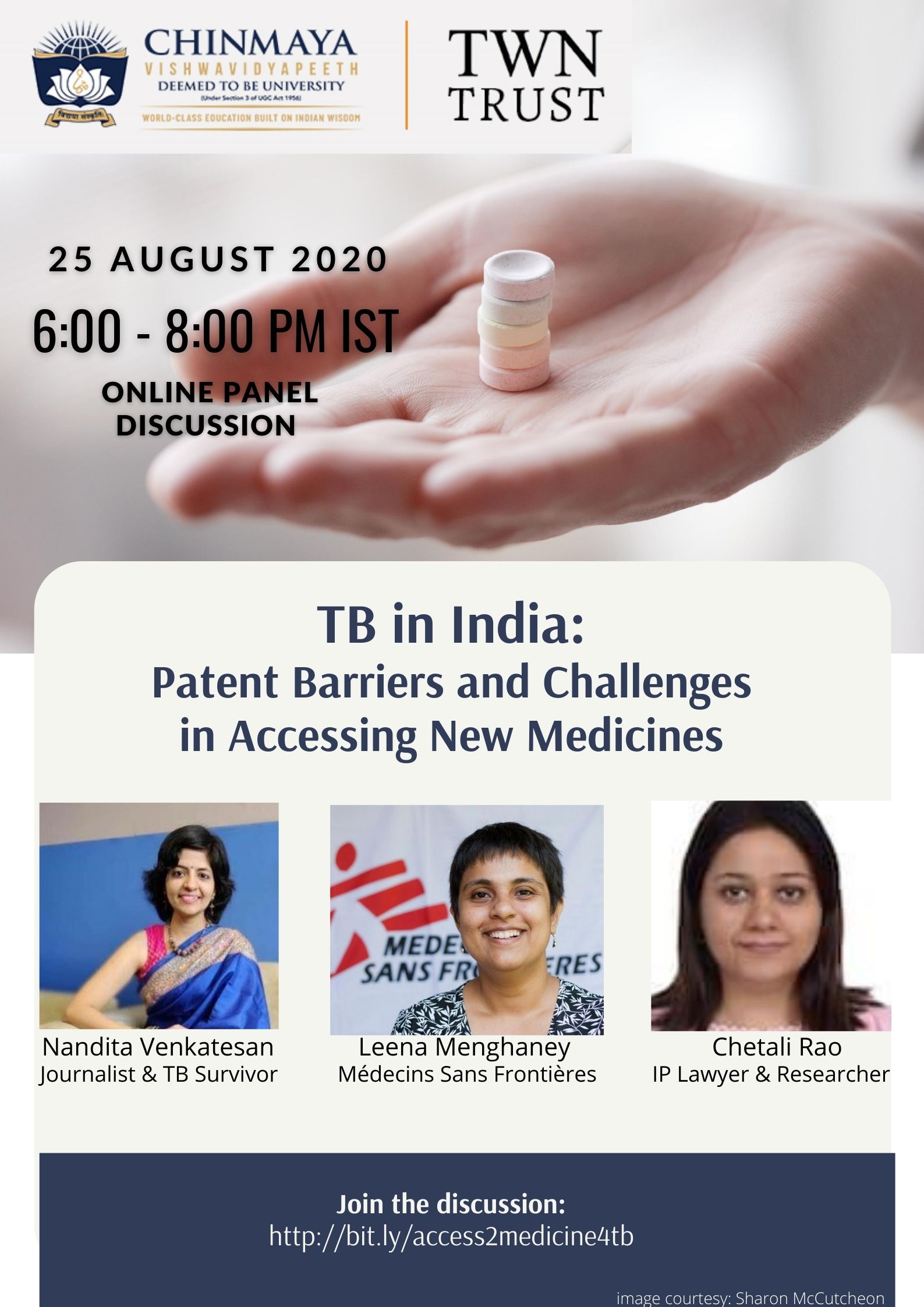Date: 25 August, 2020, Tuesday
Time: 6:00 – 8:00 PM
Tuberculosis (TB) is a communicable and infectious disease that causes major illness and is one of the top 10 causes of death in the world. India had a total of 24.04 lac notified cases of tuberculosis. The WHO estimates that India has an estimated incidence of 26.9 lakh cases in 2019.
Tuberculosis generally affects the lungs, but can also affect other parts of the body. When infections do not show symptoms, it is termed as latent tuberculosis. Since tuberculosis is a disease emanating from a bacterium, the treatment regime consists of administering anti-bacterial medicines, over a prolonged period of time. If patients are found to have developed resistance to the existing treatment regime, the case is termed as multi-drug resistant tuberculosis (MDR-TB) and extensively drug-resistant tuberculosis (XDR-TB), commonly known as drug-resistant (DR) TB. The resistance can either be primary i.e. resistance developed before the initiation of treatment or secondary resistance developed after the initiation of anti-tuberculosis treatment in patients.
The WHO World TB report, 2019 observes that “Geographically, most TB cases in 2018 were in the WHO regions of South-East Asia (44%), Africa (24%) and the Western Pacific (18%), with smaller percentages in the Eastern Mediterranean (8%), the Americas (3%) and Europe (3%). Eight countries accounted for two thirds of the global total: India (27%), China (9%), Indonesia (8%), the Philippines (6%), Pakistan (6%), Nigeria (4%), Ban-gladesh (4%) and South Africa (3%).”
India is among high TB burden country. Drug resistant TB is huge public health threat, left untreated can claim lives. In 2018, there were about half a million new cases of rifampicin-resistant TB of which 78% MDR TB. Among the three countries- India, China and Russia-with largest share of global TB burden, India has 27% of DR-TB.
The current treatment regimen is a combination of multiple drugs and the current medications used to treat tuberculosis include: Isoniazid,Rifampicin (Rifampin),Ethambutol (Myambutol) and Pyrazinamide. However, these drugs have extreme side-effects resulting in hearing loss, psychosis etc. The newer medicines such as bedaquilin, delamanid, pretomanid and their combinations have less side-effects and have shown greater effect in curing TB. However, these drugs are patented and highly priced thereby create hurdles in accessing these drugs. Despite the fact that WHO has enlisted bedaquilin as immediate treatment for DR-TB, in India DR-TB patients are still not provided with bedaquilin.
Moderator: Prathibha Sivasubramanian, Senior Researcher, TWN.
Speakers:
Nandita Venkatesan, is a journalist, TEDx speaker, and an advocate for tuberculosis & disability, with stints across leading news organisations. She will speak from a patient’s perspective, the difficulties in accessing TB drugs.
Leena Menghaney, Regional Head (South Asia) at the Access Campaign at Médecins Sans Frontières (MSF)- She will speak about access to new therapies, difficulties in accessing bedaquilin and delamanid, patent barriers, etc
Chetali Rao, legal, policy researcher and an intellectual property lawyer. She will speak about the upcoming therapies and pipeline drugs, patent barriers.
Host: Sreenath Namboodiri, Asst. Prof. of Law, School of Ethics Governance and Cultural Studies, Chinmaya Viswavidyapeeth.

